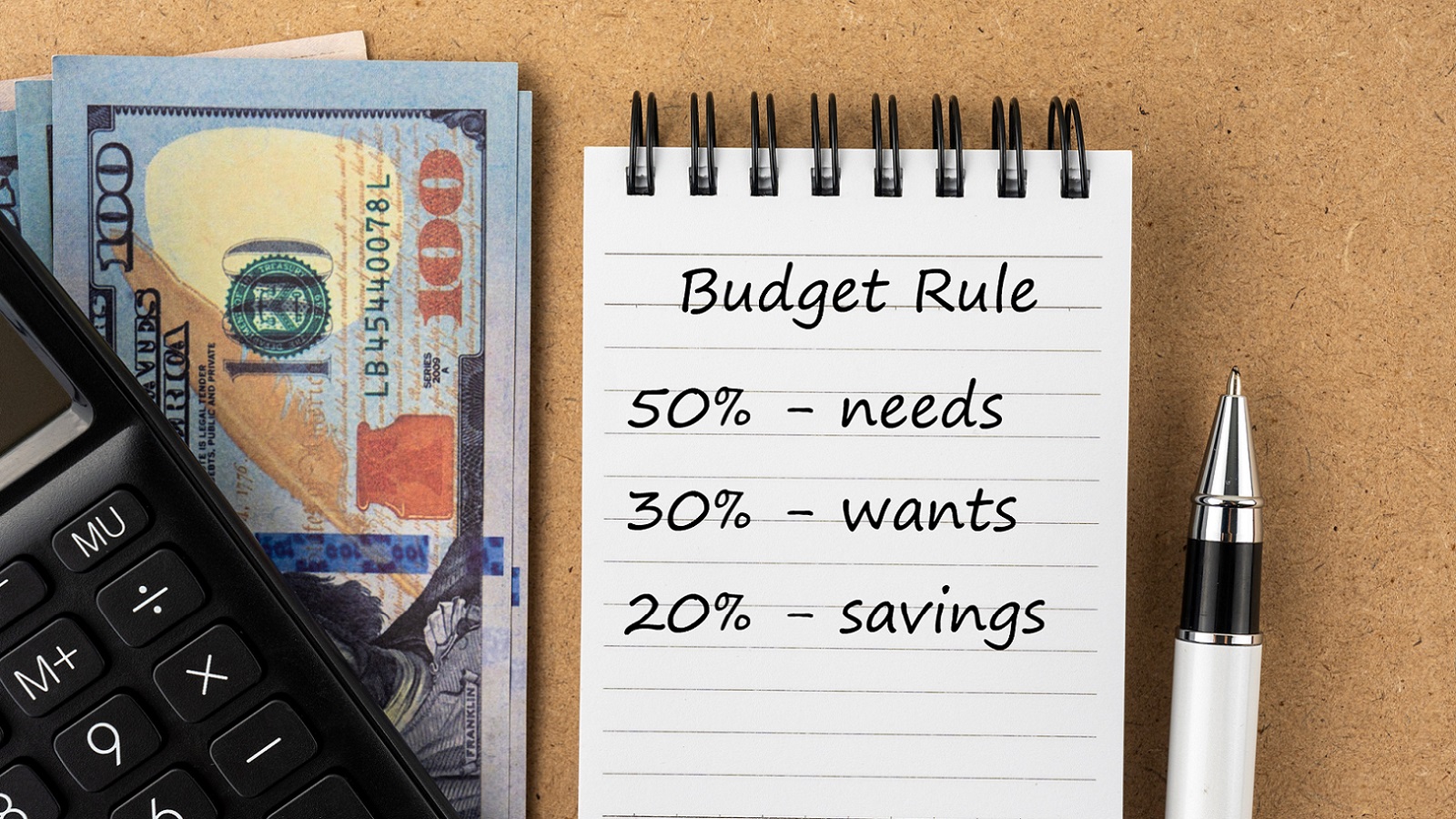Learning to Live With Debt
Debt may be a part of your budget for decades to come. Establish a plan for managing it wisely.

Profit and prosper with the best of Kiplinger's advice on investing, taxes, retirement, personal finance and much more. Delivered daily. Enter your email in the box and click Sign Me Up.
You are now subscribed
Your newsletter sign-up was successful
Want to add more newsletters?

Delivered daily
Kiplinger Today
Profit and prosper with the best of Kiplinger's advice on investing, taxes, retirement, personal finance and much more delivered daily. Smart money moves start here.

Sent five days a week
Kiplinger A Step Ahead
Get practical help to make better financial decisions in your everyday life, from spending to savings on top deals.

Delivered daily
Kiplinger Closing Bell
Get today's biggest financial and investing headlines delivered to your inbox every day the U.S. stock market is open.

Sent twice a week
Kiplinger Adviser Intel
Financial pros across the country share best practices and fresh tactics to preserve and grow your wealth.

Delivered weekly
Kiplinger Tax Tips
Trim your federal and state tax bills with practical tax-planning and tax-cutting strategies.

Sent twice a week
Kiplinger Retirement Tips
Your twice-a-week guide to planning and enjoying a financially secure and richly rewarding retirement

Sent bimonthly.
Kiplinger Adviser Angle
Insights for advisers, wealth managers and other financial professionals.

Sent twice a week
Kiplinger Investing Weekly
Your twice-a-week roundup of promising stocks, funds, companies and industries you should consider, ones you should avoid, and why.

Sent weekly for six weeks
Kiplinger Invest for Retirement
Your step-by-step six-part series on how to invest for retirement, from devising a successful strategy to exactly which investments to choose.
In an ideal world, you would pay cash for everything. In this world, however, taking on some debt is often necessary—and that’s especially true if you’re a young adult trying to get by on (hopefully) the smallest paychecks of your career.
See Our Slide Show: 10 Reasons You Will Never Get Out of Debt
Alas, the fight against debt is a lifelong one. According to a 2012 report by credit reporting firm Experian, the average 19- to 29-year-old has nearly $35,000 of debt. That figure balloons to more than $100,000 for those age 30 to 65 before coming back down to $38,000 for Americans who are 66 and older.
Young adults who learn now how to reconcile big costs with lesser pay can free themselves from debt sooner—and prevent debt from overwhelming them along the way. "You have to be strategic," says David Weliver, founder of MoneyUnder30.com. "The debt is going to be with you for a little while, and you need to take a planning approach in which you're constantly vigilant and making progress but not prohibited from enjoying life."
From just $107.88 $24.99 for Kiplinger Personal Finance
Become a smarter, better informed investor. Subscribe from just $107.88 $24.99, plus get up to 4 Special Issues

Sign up for Kiplinger’s Free Newsletters
Profit and prosper with the best of expert advice on investing, taxes, retirement, personal finance and more - straight to your e-mail.
Profit and prosper with the best of expert advice - straight to your e-mail.
Nothing to Fear
Not all debt is all bad. "We don't need to be overly afraid of debt," says Karen Carr, certified financial planner with the Society of Grownups, based in Brookline, Mass. "It can make sense in a number of different situations." For example, how many people could cover 100% of home-buying costs up front? Seriously, even squirreling away a 20% down payment is a big challenge, especially for young people today.
Instead of forgoing all forms of debt, be reasonable about what you can afford to take on and whether it's worth it. Before you get a loan to, say, go back to school or buy a house or car, understand what comes with it, including when you need to start repaying, what your interest rate is and other repayment terms.
Credit card debt is a different kind of beast that should be avoided altogether. Keep in mind that credit cards themselves are not necessarily the problem. Actually, they can come with opportunities to save. "When they're marketing, credit card companies want you to feel like it's a smart decision to spend on a credit card. And for a highly disciplined, highly controlled person, it is," says Nick Clements, co-founder of MagnifyMoney.com and a former banker. "You can earn cash back or miles, you get all kinds of fraud protection, and if you pay your balance off in full every month, it doesn't cost you a dime."
That if is the key. Handling a credit card responsibly—using it in moderation and paying it off each month—is good. Not only does it save you from ever having to pay interest, it also helps you build up a solid credit history and improve your credit score. Carrying a balance, on the other hand, is detrimental to your finances—and it's an easy trap to fall into. "For most people who end up in credit card debt, it's death by a thousand cuts," says Clements. "It's not one big purchase; it's an extra $10 here, $20 there, and all of a sudden you've got $4,000 worth of debt and you don't even know where it came from."
To avoid this slow demise, you need to have a budget you can stick to. Keep your big costs, such as rent, as low as you can and well within the means of your entry-level paycheck. (Kiplinger suggests limiting your spending on rent, utilities, and home or renter’s insurance to 35% of your after-tax budget.)
And be honest about what you'll spend your money on. "We always underestimate other expenses," says Clements. "You need to be realistic about what you're going to be doing in your social life and whatever it is that's important to you. Whether it's collecting stamps, going to the bar or the gym, or traveling, you want to set yourself up so that you have enough money to do that." (See How to Create a Budget.)
Paying It Off
If you're already on the hook, inventory all your debts and be sure to fit at least the minimum payments into your monthly budget. "If you're having difficulty meeting the minimum payment, that's the time to call your loan servicer and discuss different repayment plan options," says Carr. It's better to address any problems you might have as soon as possible rather than ignore them and risk racking up penalty fees or dragging down your credit score.
Once you've figured out all your minimum payments, see how much extra you can afford to pay, and make a plan to speed up your debt clearing. (See our Get-Out-of-Debt quiz to learn valuable lessons in building a debt-reduction plan.)
Student loans are likely at the top of your debt list: 60% of 2013 college grads borrowed money to pay for school, and their loan balances averaged $27,300 at graduation. You have a number of repayment options when it comes to this debt. The Department of Education's repayment calculator can help you explore your choices. You might also consider the possibility of refinancing your private student loans. (It's possible to refinance federal loans, but doing so would mean losing certain allowances, such as the option for income-based repayment. Consider carefully whether this route is worth it before you proceed.)
Paying off your credit card debts will likely be your next priority. Carr helps her clients by calculating how long it will take them to clear the debt if they pay only the minimum. "I think once you put actual numbers to this decision, it makes it a lot easier to understand," she says.
Going by the calculations, paying off the cards with the highest interest rates makes the most sense. The sooner you pay those off, the more you'll save in accrued interest.
Another strategy is to tackle the smallest balances first. The thinking is that clearing away even a little debt can build the momentum necessary to keep tackling more and more debt. Weliver, the founder of MoneyUnder30.com, used this strategy when he successfully cleared about $80,000 worth of debt from his life in just three years. "A lot of debt payoff is psychological," he says. "Progress takes months or years, so anytime you can have a little positive reinforcement and close out a small debt and see a zero balance—that's what kept me going."
Also consider refinancing your credit card debt. If you had a card in college, Clements notes, it likely has a high interest rate and few rewards. You may be able to transfer that balance to another card for a better deal. The Chase Slate card is a good choice. It has no annual or balance-transfer fees for the first 60 days and a rate of 0% for the first 15 months. (See Be Strategic With Credit-Card Balance Transfers.) You can find other options at Clements's MagnifyMoney.com, as well as Bankrate.com, CreditCard.com and other sites.
However you prioritize your debts, don’t live too austerely in an extreme effort to pay everything off. It's better to be honest with yourself about the things you'll want to splurge on from to time to time and work that spending into your plans. For example, even when he was in full-on debt-attack mode, Weliver gave himself allowances for traveling to see friends. He even took a big trip to Sarajevo to attend the wedding of his now-wife's college roommate. "It was a setback; I had to pay for the trip instead of paying down debt," he says. "But it was a once-in-a-lifetime opportunity. Of course I don't regret it."
Profit and prosper with the best of Kiplinger's advice on investing, taxes, retirement, personal finance and much more. Delivered daily. Enter your email in the box and click Sign Me Up.

Rapacon joined Kiplinger in October 2007 as a reporter with Kiplinger's Personal Finance magazine and became an online editor for Kiplinger.com in June 2010. She previously served as editor of the "Starting Out" column, focusing on personal finance advice for people in their twenties and thirties.
Before joining Kiplinger, Rapacon worked as a senior research associate at b2b publishing house Judy Diamond Associates. She holds a B.A. degree in English from the George Washington University.
-
 How Much It Costs to Host a Super Bowl Party in 2026
How Much It Costs to Host a Super Bowl Party in 2026Hosting a Super Bowl party in 2026 could cost you. Here's a breakdown of food, drink and entertainment costs — plus ways to save.
-
 3 Reasons to Use a 5-Year CD As You Approach Retirement
3 Reasons to Use a 5-Year CD As You Approach RetirementA five-year CD can help you reach other milestones as you approach retirement.
-
 Your Adult Kids Are Doing Fine. Is It Time To Spend Some of Their Inheritance?
Your Adult Kids Are Doing Fine. Is It Time To Spend Some of Their Inheritance?If your kids are successful, do they need an inheritance? Ask yourself these four questions before passing down another dollar.
-
 I Need to Cut $1,000 From My Monthly Budget, and I've Already Given Up Starbucks and Dining Out. What Else Can I Do?
I Need to Cut $1,000 From My Monthly Budget, and I've Already Given Up Starbucks and Dining Out. What Else Can I Do?Here are some creative ways to save up to $1,000 a month, even if you feel like you've already made all of the obvious cuts.
-
 I'm a Government Employee and Need to Get By Until the Shutdown Ends. What Can I Do?
I'm a Government Employee and Need to Get By Until the Shutdown Ends. What Can I Do?The second-longest shutdown in history is leaving many federal workers with bills due and no paycheck to cover them. Here's what you can do to get by.
-
 What Does Medicare Not Cover? Eight Things You Should Know
What Does Medicare Not Cover? Eight Things You Should KnowMedicare Part A and Part B leave gaps in your healthcare coverage. But Medicare Advantage has problems, too.
-
 The 50-30-20 Budget Rule: A Simple Way to Save Money
The 50-30-20 Budget Rule: A Simple Way to Save MoneySaving Using the 50-30-20 budget rule is an easy way to save. It helps you prioritize saving while paying off debt.
-
 Four Smart Steps To Take Before Buying Your First Home
Four Smart Steps To Take Before Buying Your First Homehome Buying your first home can be daunting. Here are four things you need to do years before you start house-hunting to prepare financially for the biggest purchase of your life.
-
 'Food Tax': Which States Still Tax Groceries?
'Food Tax': Which States Still Tax Groceries?State Tax Ten states still tax groceries, but that figure is shrinking.
-
 How Our Family Fights Inflation
How Our Family Fights InflationBudgeting Millennials typically spend more than other generations on certain expenses that have been increasing most rapidly. Here are some tips to cut your losses.
-
 Gas Prices Around the World
Gas Prices Around the WorldBudgeting Many world gas prices can make what Americans pay at the pump seem like a bargain. But not all.